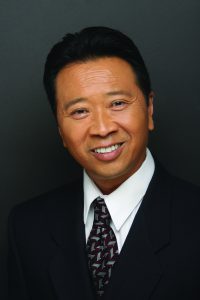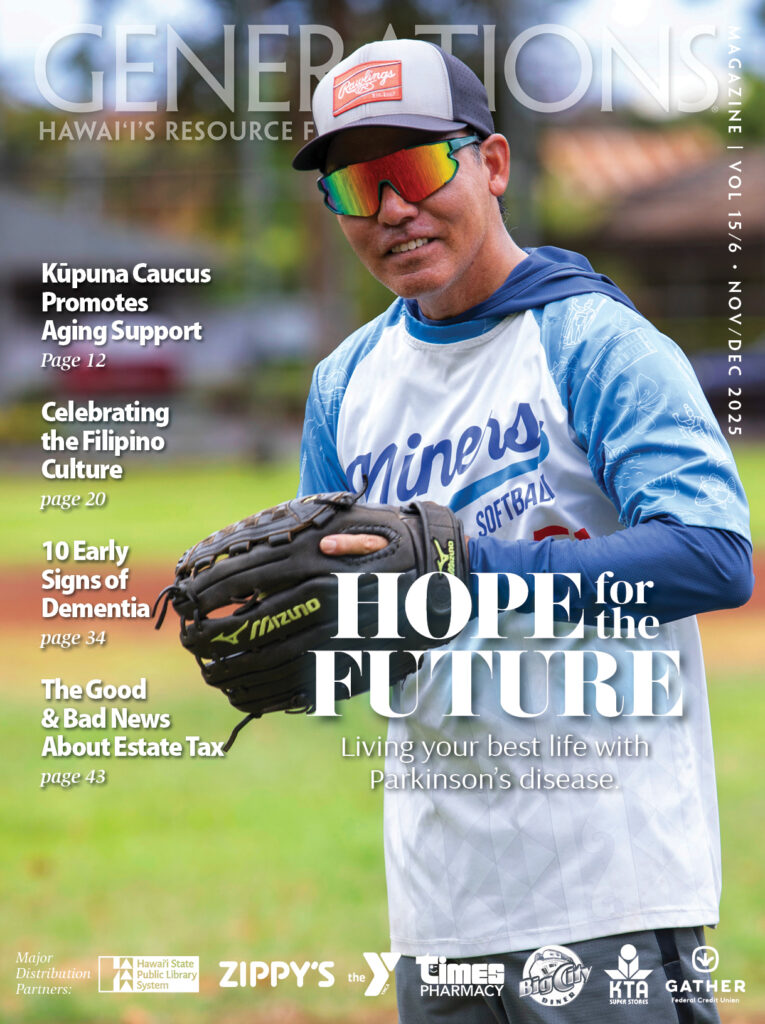 An interview: author Michael W. K. Yee, Financial Advisor and Ameriprise Certified Financial Planner
An interview: author Michael W. K. Yee, Financial Advisor and Ameriprise Certified Financial Planner
by Generations Magazine Staff
Are Hawai‘i seniors living well and thriving?
Hawai‘i is the best place to retire and thrive. The climate and culture of ‘ohana is second to none for living a good life with family and friends. Also on the plus side, seniors get to enjoy more quality of life here. It’s no surprise Hawai‘i has the highest longevity in the country.
That said, in 36 years of financial advising, I have learned not to predict longevity for anyone. Longevity statistics are just average ages. Some people still die before they get old. Instead, I tell my clients, “I have no idea how and when a person is going to die. What I do know is that not many people die quickly; whether life is long or short, we will likely experience long-term care.
So should we still wish for a long life?
I used to say, “I hope you live a good life.” I define “good” as living a full life that quickly ends in a painless death. Sadly for many, this scenario is not the case. Advances in medicine and technology that extend quality of life are good, but when they increase what I call the “slow go,” (the time of disability and diminished capacity to enjoy life), it may not be so good. Extending slow go with long-term care can become a lengthy “no go” (living in complete dependency on caregivers). Preventing the “let go” (the end of life) may not be the kind of longevity we wished for.
Dementia care is long-term care, too.
Yes, social security states that seven in 10 persons will experience long-term care. The average time they spend in “slow go” through “no go” is three years. Half of Hawai‘i seniors over 85 experience some form of dementia. The average length of care for dementia is 10 years. Caregiving is not free. There is always a huge price — physical, emotional, relational and financial. We have to focus not only on the person receiving care, but also on the caregiver. Some families break apart when caregiving — others come together. If family members cannot be caregivers, they have to pay professional services. That can cost lots of money.
In 2019, a private room in a Hawai‘i nursing home cost an average of $160,418 per year (Genworth study). Few of us have so much money that we can write a check of any size without dipping into savings or our retirement account. It’s easy to see why many families facing enormous costs of long-term care feel depressed and hopeless.
What planning options do seniors have?
Many seniors are proactive about improving their health and quality of life. That’s the first thing to take care of. Others are planning their dying experience with their doctors. But between living and dying is a guessing game. The good news is that I see many seniors taking a proactive approach to improve their financial readiness for whatever comes. They have an idea what they would like, so they discuss their wishes with their family and heirs. The conversation generates many financial questions for me — legal questions for their attorney. They want to maintain their independence and they see planning ahead as a way to do that. Into the bargain, they can enjoy a better retirement experience and better quality of life later on if they face sickness, decline and dying.
Describe the kind of seniors who take the proactive approach to life?
There are no accidents. I see that people who are proactive and intentional are more successful at living a life of choice rather than one of chance. People who plan look ahead to the future. Seniors come in different sizes and shapes financially, as well as family-wise. The right thing to do for one is different for another, but in general, people who succeed are comfortable with setting goals. They like to focus on the prize — and use it to measure their progress. To succeed, they must have both a good plan and good execution. Their plan must be holistic and comprehensive in that it includes every aspect of their lives. It must address retirement, long-term care, death and legacy.
Another aspect of successful seniors is that they appreciate teamwork. They realize they aren’t going to be good at everything so they pick a dream team of their favorite health, financial and legal professionals to work together for their benefit . They want all their experts on the same page — not working independently. These kind of seniors wants to get their big decisions right. Lastly, these people communicate well and share their plan with their families.
Boomers your age are seniors now. What kind of care can they expect in the future?
Experts call baby boomers “the sandwich generation.” They experienced their parents facing the benefits and hardships of retirement and long-term care. Many helped care for grandparents and parents at the same time they were educating their kids. I don’t know all things, but I do observe that more boomers — especially women — own long-term care insurance based on their personal experience with caregiving.
I am optimistic; boomers don’t see caring for a parent as just hardship or burden. Many view caregiving as lesson and a gift. I believe our world view is the sum of past learning and experiences. This is the essence of Hawaiian ho‘oponopono — keeping things righteous. Past knowledge and wisdom descends from our ancestors and parents; from us, it flows forward to coming generations. Our parents brought us into this life with love, so the greatest gift we can give them is to walk them home with love. Yes, I have faith in the boomers and their kids. And faith is not blind; it comes from an abundance of undeniable evidence.


Leave a Reply